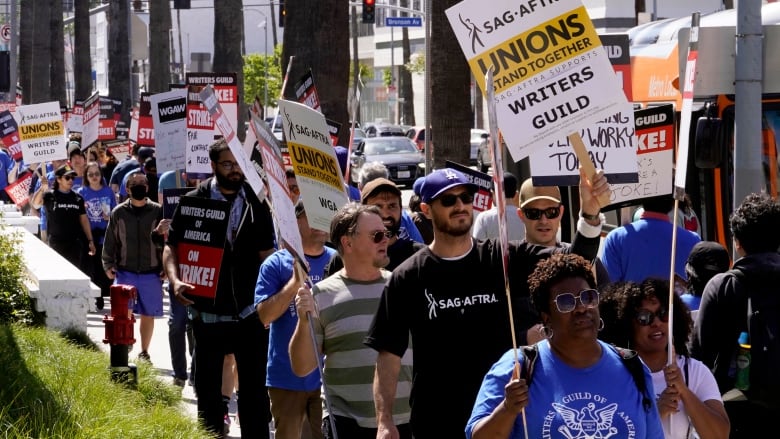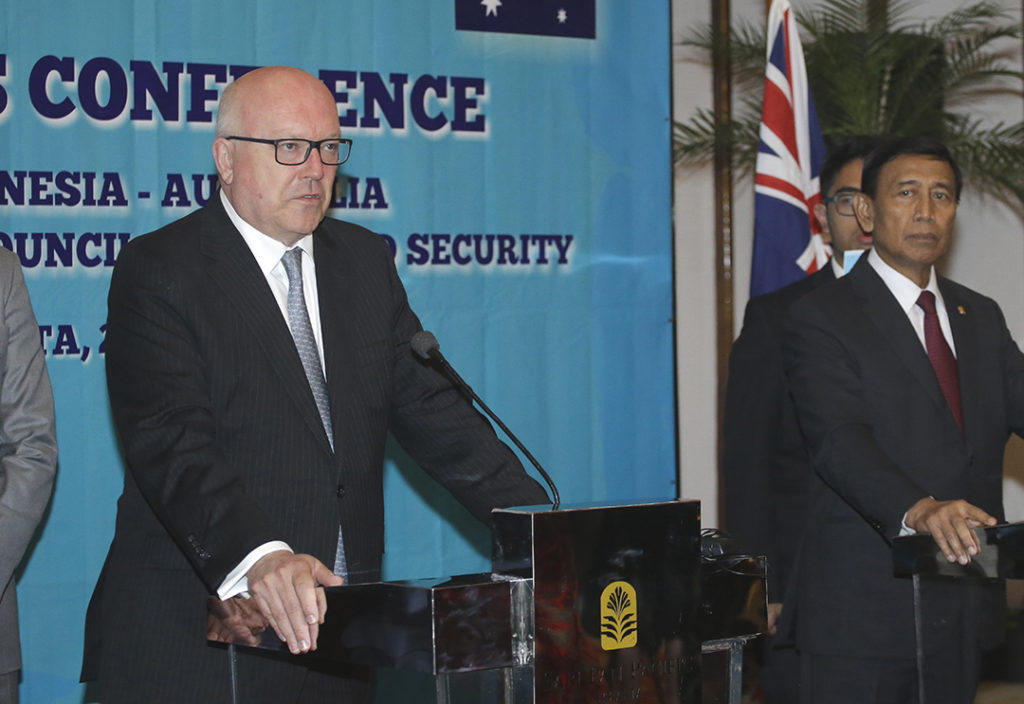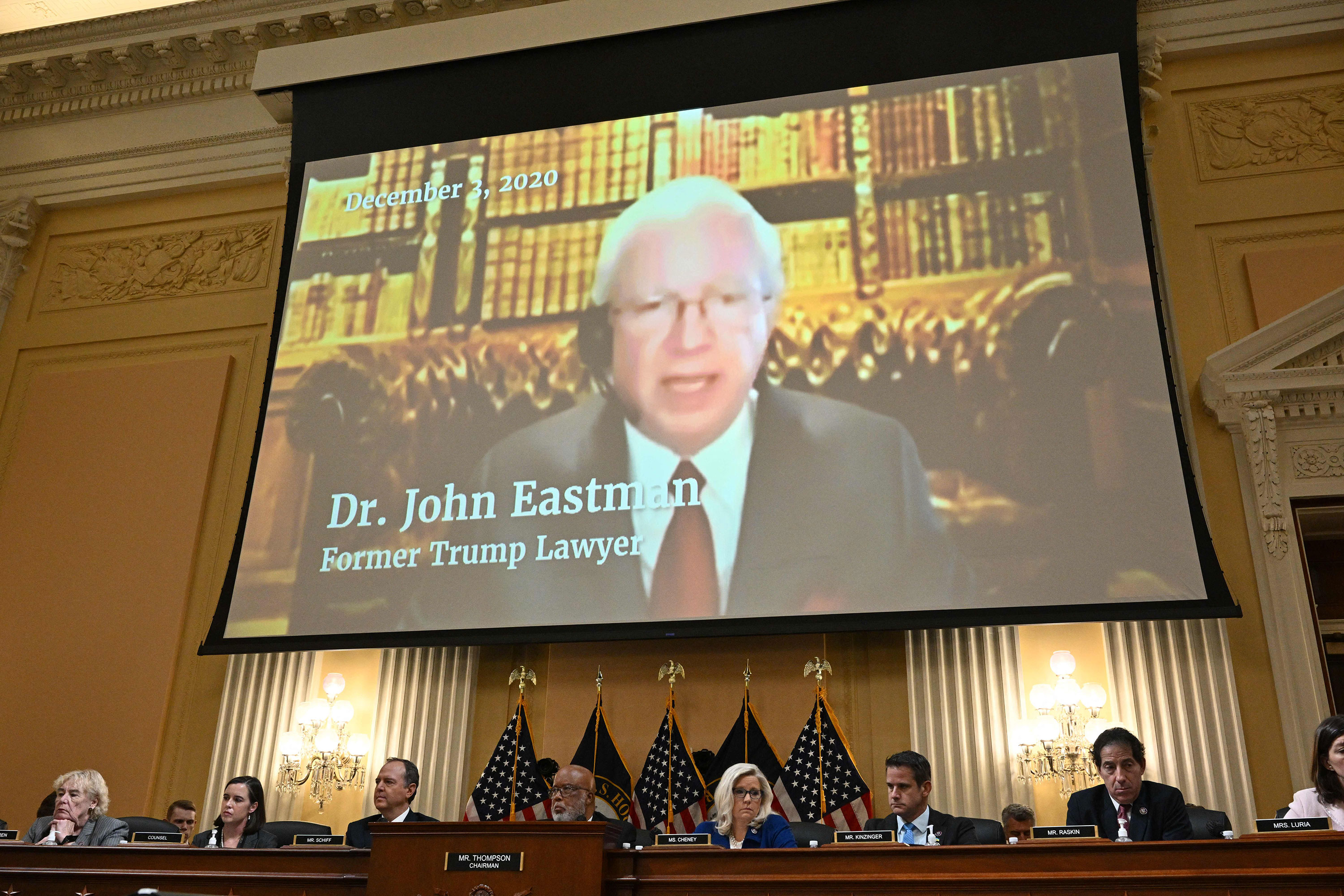Double Trouble In Hollywood: Writers And Actors On Strike

Table of Contents
The Writers' Strike: Core Issues and Demands
The WGA strike, which began in May 2023, represents a significant turning point in the relationship between writers and the major studios. The core issues revolve around fair compensation in the streaming era and the protection of writers' creative control.
Fair Wages and Residuals in the Streaming Era
The shift from traditional television models to streaming services has dramatically altered how writers are compensated. The lucrative residuals, or payments received each time a show airs, that were once a staple of television writers' income are significantly diminished in the streaming landscape. Streaming platforms often operate on opaque revenue models, making it difficult for writers to understand how their work is contributing to overall profitability.
- Lack of transparency in streaming revenue: Studios often refuse to disclose detailed financial information regarding streaming profits, making it impossible for writers to negotiate fair compensation.
- Minimum guaranteed pay for writers: The WGA demands a minimum guaranteed pay for writers, regardless of the success of a show on a streaming platform. This would provide crucial financial stability for writers who previously relied on residuals.
- Fair share of profits from streaming platforms: Writers are demanding a fairer share of the immense profits generated by streaming giants, reflecting the value of their creative contributions.
Reports suggest that writer compensation has declined significantly in the streaming era. While precise figures are debated, anecdotal evidence from writers supports the claim that their income has been impacted negatively by the shift to streaming.
Protecting Writers' Creative Control and Preventing AI Exploitation
Another major concern for the WGA is the increasing use of artificial intelligence (AI) in scriptwriting. Writers fear that AI could be used to replace human writers, undermining their creative control and diminishing their job security.
- Demands for regulations on AI usage in scriptwriting: The WGA is advocating for strong regulations on the use of AI in the creation of scripts, ensuring that human writers remain central to the creative process.
- Protecting writers' intellectual property rights: The guild aims to protect writers' intellectual property rights, preventing unauthorized use of their work by AI systems.
- Preventing AI from replacing human writers: The core demand is to ensure that AI is used as a tool to assist writers, not replace them entirely.
Examples of AI being used to generate scripts, albeit still in early stages, are increasingly reported in Hollywood, further fueling writers' concerns about job displacement.
The Actors' Strike: Joining Forces for Fair Treatment
SAG-AFTRA joined the WGA on the picket lines in July 2023, solidifying a "double trouble" situation for Hollywood studios. Their concerns mirror those of the writers, focusing on fair compensation in the streaming age and improved working conditions.
Fair Compensation and Residuals for Streaming
The transition to streaming has negatively affected actors' compensation as well. Similar to writers, actors often receive minimal residuals for their work on streaming platforms. The lack of transparency in streaming revenue streams makes it difficult to negotiate fair compensation.
- Demands for fairer residual payments for streaming content: Actors are demanding a more equitable share of streaming revenues, reflecting the continued value of their performances.
- Improved minimum wage: The guild is pushing for an increase in minimum wages to reflect the rising cost of living.
- Protection against the use of AI to replace actors: Similar to writers, actors are concerned about the potential use of AI to generate realistic digital performances, potentially displacing human actors.
Many actors have reported a significant decrease in income since the rise of streaming services, highlighting the need for adjustments to compensation models.
Self-Tape Auditions and Working Conditions
The increasing reliance on self-tape auditions presents a further challenge for actors. These auditions, while cost-effective for studios, often place an undue burden on actors in terms of time, cost (equipment rentals, etc.), and the emotional toll of constantly auditioning without guaranteed work.
- Demands for better working conditions: SAG-AFTRA is seeking to improve overall working conditions for actors.
- Restrictions on excessive self-tape auditions: The union is pushing for limitations on the number of self-tape auditions required, reducing the burden on actors.
- Protection from exploitation in the industry: The union aims to protect actors from exploitation, ensuring fair treatment and reasonable working hours.
The Impact of the Double Strike on Hollywood and Beyond
The simultaneous strikes by writers and actors have created a significant ripple effect throughout the entertainment industry and beyond.
Economic Repercussions
The double strike has brought many film and television productions to a complete standstill, leading to substantial economic losses.
- Impact on studio profits: Major studios are experiencing significant losses in revenue due to the delayed release of films and television shows.
- Effects on smaller production companies: Smaller production companies are particularly vulnerable to the economic impact of the strike, facing potential financial ruin.
- Potential job losses for crew members: The production delays resulting from the strikes have led to widespread job losses among crew members.
Estimates of the economic losses for Hollywood are already in the billions of dollars, with the potential for even larger losses as the strike continues.
Cultural Impact and Public Perception
The strikes have generated considerable public attention and support. Many people view the strikes as a fight for fair labor practices and creative control in a rapidly changing industry.
- Public support for the strikers: There's been widespread public support for both the WGA and SAG-AFTRA, highlighting the public's concern for fair treatment within the entertainment industry.
- Potential changes in industry practices: The outcome of these strikes could lead to significant changes in the way Hollywood operates, influencing how writers and actors are compensated and protected.
- The future of Hollywood production: The prolonged strike could fundamentally alter the future of Hollywood production, impacting the types of projects produced and the overall creative landscape.
Many high-profile celebrities and public figures have openly supported the striking writers and actors, further amplifying the public awareness and support for their cause.
Conclusion
The "double trouble" in Hollywood caused by the simultaneous writers' and actors' strike highlights crucial issues regarding fair compensation, creative control, and the evolving landscape of the entertainment industry. The ongoing conflict underscores the need for substantial changes to address the challenges posed by streaming platforms and the rise of AI. The outcome of these strikes will significantly shape the future of filmmaking and television for years to come. Understanding the complexities of this "double trouble" is essential for anyone interested in the future of Hollywood and its creative workforce. Stay informed about the developments in the ongoing double trouble in Hollywood: writers and actors on strike.

Featured Posts
-
 Analyzing The Challenges Faced By International Automakers In The Chinese Market Bmw And Porsche Example
Apr 22, 2025
Analyzing The Challenges Faced By International Automakers In The Chinese Market Bmw And Porsche Example
Apr 22, 2025 -
 From Scatological Documents To Engaging Podcasts The Power Of Ai
Apr 22, 2025
From Scatological Documents To Engaging Podcasts The Power Of Ai
Apr 22, 2025 -
 Stock Market Volatility Are Investors Ignoring The Warning Signs
Apr 22, 2025
Stock Market Volatility Are Investors Ignoring The Warning Signs
Apr 22, 2025 -
 Closer Security Collaboration Between China And Indonesia
Apr 22, 2025
Closer Security Collaboration Between China And Indonesia
Apr 22, 2025 -
 Cassidy Hutchinson To Publish Memoir Detailing Jan 6 Events
Apr 22, 2025
Cassidy Hutchinson To Publish Memoir Detailing Jan 6 Events
Apr 22, 2025
